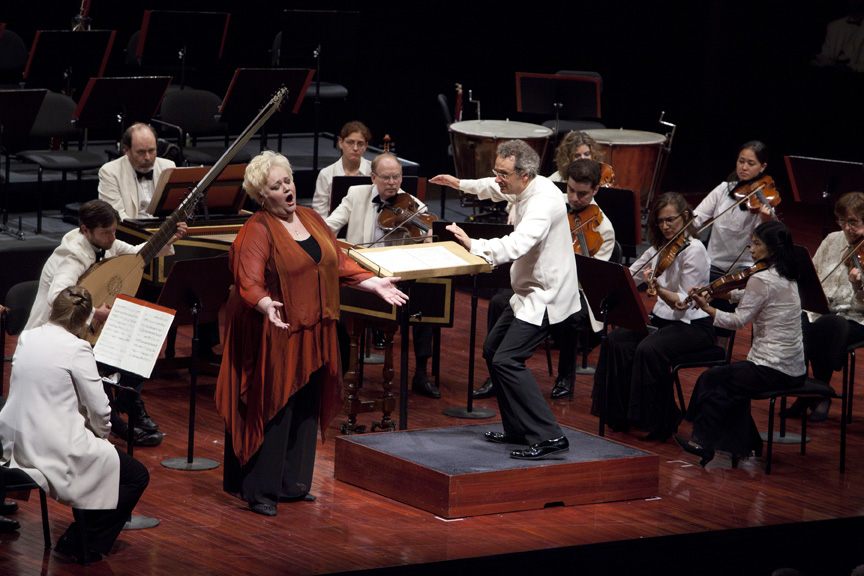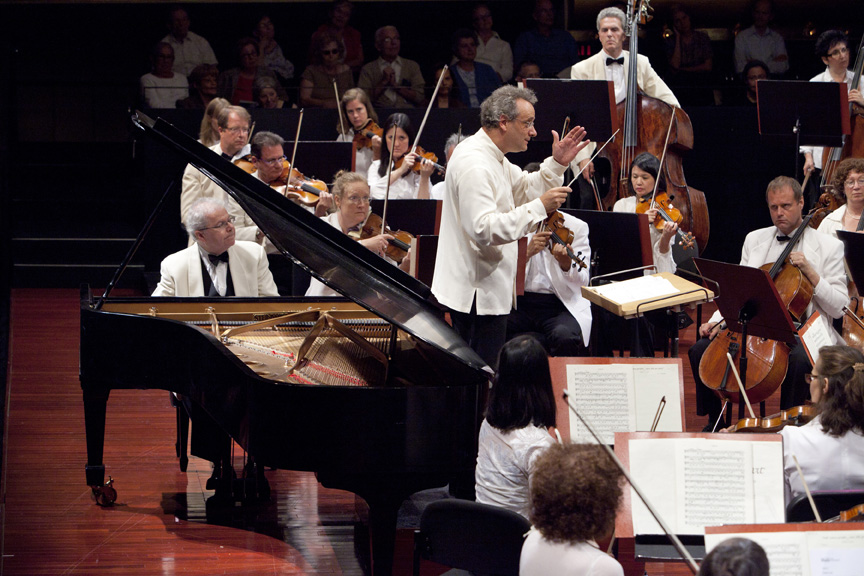This is the Mostly Mozart Festival’s 44th season – an impressive display of longevity and resilience. It has weathered many internal and external changes that affected its programming strategy, and this year’s programs reflect some of them: they range from All-Mozart to Mostly Mozart, Some Mozart, A Little Mozart, and No Mozart At All.
Mozart is featured in its opening and closing concerts: the latter will be All-Mozart and the former began and ended with Mozart, the Overture to La Clemenza di Tito and the “Haffner” Symphony, K.385. In between came Chopin’s Piano Concerto No. 2 in F minor Op. 21, played by Emanuel Ax, and arias from Handel’s Giulio Cesare and Gluck’s Orfeo ed Euridice, sung by mezzo-soprano Stephanie Blythe. Louis Langrée, the Festival’s Music Director, conducted the Mostly Mozart Festival Orchestra.
Most of the Orchestra’s musicians have been with the Festival for many seasons, but do not play together regularly all year; they must recapture and refine their ensemble every summer. Also, this is a chamber group rather than a symphony orchestra, so it lacks the power needed for some of the symphonic literature. For this program, however, it was just right, and it was immediately clear that it is in fine shape, able and eager to carry out its Maestro’s wishes. Langrée is an elegant conductor, though his arm-gestures make him look as if he were going to fly off at any moment, an impression accentuated by the full-sleeved shirts he wears. His style tends toward extremes of dynamics and tempo: the pianos are almost inaudible, the fortes are eruptions that shake the rafters. He likes to hear lots of winds and percussion, putting the strings at a serious disadvantage. The opening of the Overture, for example, was explosive rather than majestic. In the Symphony, the tempi were so fast that the music lost all charm and expressiveness; even the slow movement was very brisk, and the Finale raced past in a blur.
In the Concerto, Langrée succeeded so well in keeping the orchestra from covering the soloist that, at times, the piano part seemed to float in mid-air without harmonic or rhythmic support. Ax’s playing, however, was superb. His tone was invariably beautiful, the legato sang, the chords were powerful but mellow; the runs were as clear and even as chains of pearls. His liberties—spontaneous and perfectly balanced—made the music flow as naturally as words spoken in a native idiom. The tumultuous ovation was rewarded with a brief Chopin encore.
Stephanie Blythe’s voice is formidable: it can cut through and float above an orchestra, reaching the farthest corners of an auditorium. Its quality is unique, resembling dark amber in the low register, bright amber up high; by varying her vibrato, she commands an amazing range of intensity, color and nuance. The arias she sang were taken from two of her signature roles. Cesar’s prayer was devoutly thankful and supplicating; Orpheus’ lament was perhaps not heart-broken enough, but spun out a seamless melody. The famous opening aria from Handel’s Serse (better known as Handel’s “Largo”) as an encore was beautiful.
This was a most promising start to New York’s favorite summer festival. Welcome back, Mostly Mozart!


